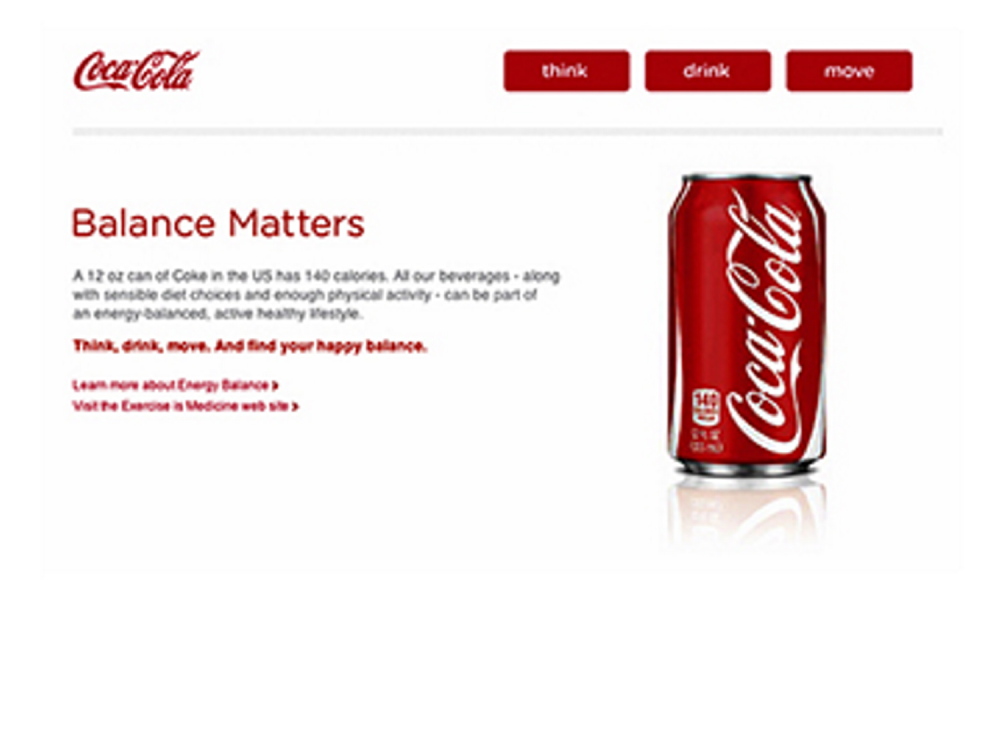What does a company do when it discovers that the product it sells is harming its customers?
When that happened to the tobacco industry, the answer was deny, deny, deny. Companies hid research that made them look bad and funded industry-friendly science that misled the public and policymakers. It was a good strategy to maintain short-term profits, but a disastrous one for smokers’ health.
Now we are seeing the soft drink industry take a page out of the tobacco companies’ playbook.
Coca-Cola, the world’s biggest soft drink manufacturer, is funding scientists who are willing to shift blame for the obesity epidemic from diet and nutrition to a lack of exercise. The Coca-Cola-supported Global Energy Balance Network will publish studies that tell people to exercise more and stop worrying about how much they eat.
This looks like another case of an industry putting profits above the public welfare, and Americans should be very skeptical about any “science” this effort produces.
A national obesity crisis is drawing attention to the beverages that pour hundreds of empty calories into the super-sized bodies of children and adults. Based on scientific research, public health authorities have been issuing warnings about the danger the drinks pose, which include tooth decay, heart disease and type 2 diabetes as well as other chronic conditions.
The campaign is working, and soda sales are in the 10th year of a decline.
Now the industry wants to turn the trend around by producing its own science. Their argument is technically correct: Weight loss and gain are partly a function of the balance between calories consumed and calories burned. But it’s misleading to claim that overconsumption can be remedied with a few extra laps in the park.
One 20-ounce bottle of Coca-Cola contains 65 grams of sugar. An active person who drank two of them in a single day would exceed the World Health Organization’s recommendation of less than 100 grams of sugar per day — and that’s if they didn’t eat or drink anything else that contained added sugar. It would be difficult to make up the difference with exercise alone.
An overweight person could burn 350 calories by running or swimming for half an hour, but many people who need to lose weight couldn’t maintain a steady pace of a strenuous activity that long, and most people would find it difficult to exercise that much every single day of their lives.
So, while exercise is important, it’s much easier to reach and maintain a healthy weight when you take control of the kinds of foods you take in, and it’s nearly impossible to make up for a very bad diet with exercise alone.
The soft drink companies make the claim that their products can be part of a healthy diet. That’s disingenuous.
What they are really saying is that if you are careful you can maintain a healthy diet in spite of drinking some sugary soft drinks. Your body does not need you to consume any added sugar. Your overall diet may be healthy even if you drink a soda now and then, but these sugars are not the “healthy” part of a “healthy diet.”
Clearly, the industry would prefer to put the blame for obesity on their customers’ habits, deflecting criticism from the product that they are selling so aggressively. These products are hurting people and the companies know it, no matter what their scientists dig up.
Send questions/comments to the editors.


